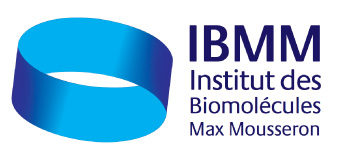Continuous monitoring diagnostics with microneedle arrays
Séminaire IBMM
Dr. Sanjiv
Le Vendredi 19 Juillet 2019 à 10h
UM UFR Pharmacie, bibliothèque du DAPP (bâtiment E, 3e étage)
Date de début : 2019-07-19 10:00:00
Date de fin : 2019-07-19 11:30:00
Lieu : UM Fac Pharma, bibliothèque DAPP (Bât. E, 3e étg)
Intervenant : Dr. Sanjiv
College of Engineering, Swansea University, UK
Compared with therapeutics, diagnostic devices account for a relatively small proportion of healthcare expenditure (less than 10%) and yet timely diagnosis as well as continuous monitoring of molecular markers can have a major impact on disease outcomes. In particular point of care (or near patient) tests can empower individuals to become active participants in the management of their conditions, giving them and their medical support greater insight into both their conditions and their response to treatment. In an extension of the point of care paradigm, continuous monitors of biomarkers and/or therapeutics allow high frequency data to be gathered and patterns of variation to be analyzed in ways that are not possible with infrequent and sporadic testing. The advent of novel materials, fabrication methods and data analysis have opened the way to new devices, assay formats and molecular targets. In my talk I will discuss some examples on my work in this area with a particular focus on microneedles for continuous, minimally invasive sensing of metabolites, drugs and biomarkers.
Biosketch: Dr Sanjiv
On completion of his fellowship he joined the Institute of Biomedical Engineering, Imperial College London to work in the area of bionanotechnology and biosensors. Here he developed minimally invasive microneedles, from photolithographic fabrication to high throughput fabrication, taking these microneedles from the lab to the clinic. He was involved in a NIHR (i4i) funded research project involving clinical studies in healthy volunteers and participants with T1D. He has published over 35 research articles and filed patents in Germany, UK and the United States. He is currently a Senior Lecturer in Medical Engineering in the College of Engineering at Swansea University, where he is working in therapeutic drug delivery and diagnostic (theranostic) applications of polymeric microneedles.
Contact local IBMM : Dr. May
